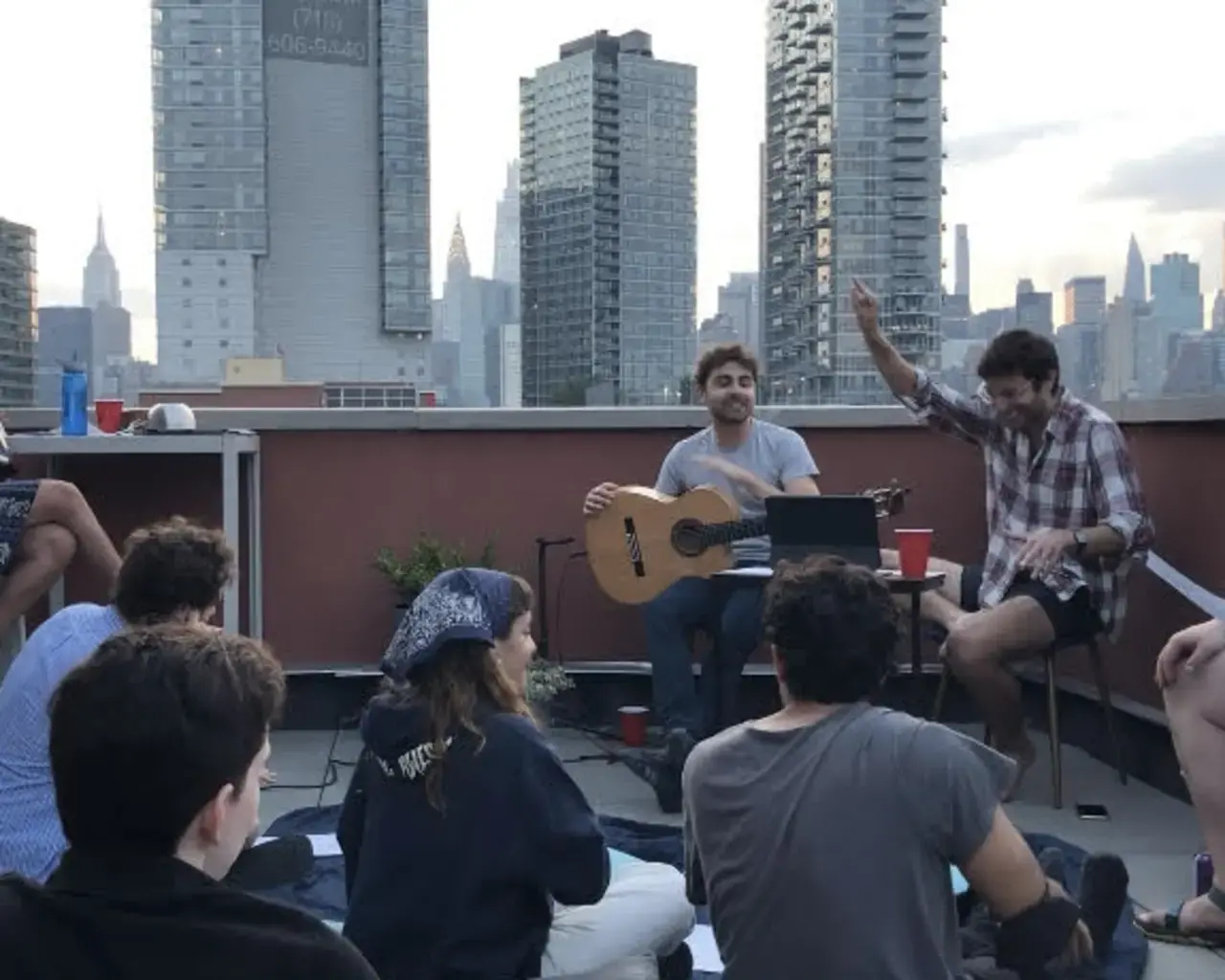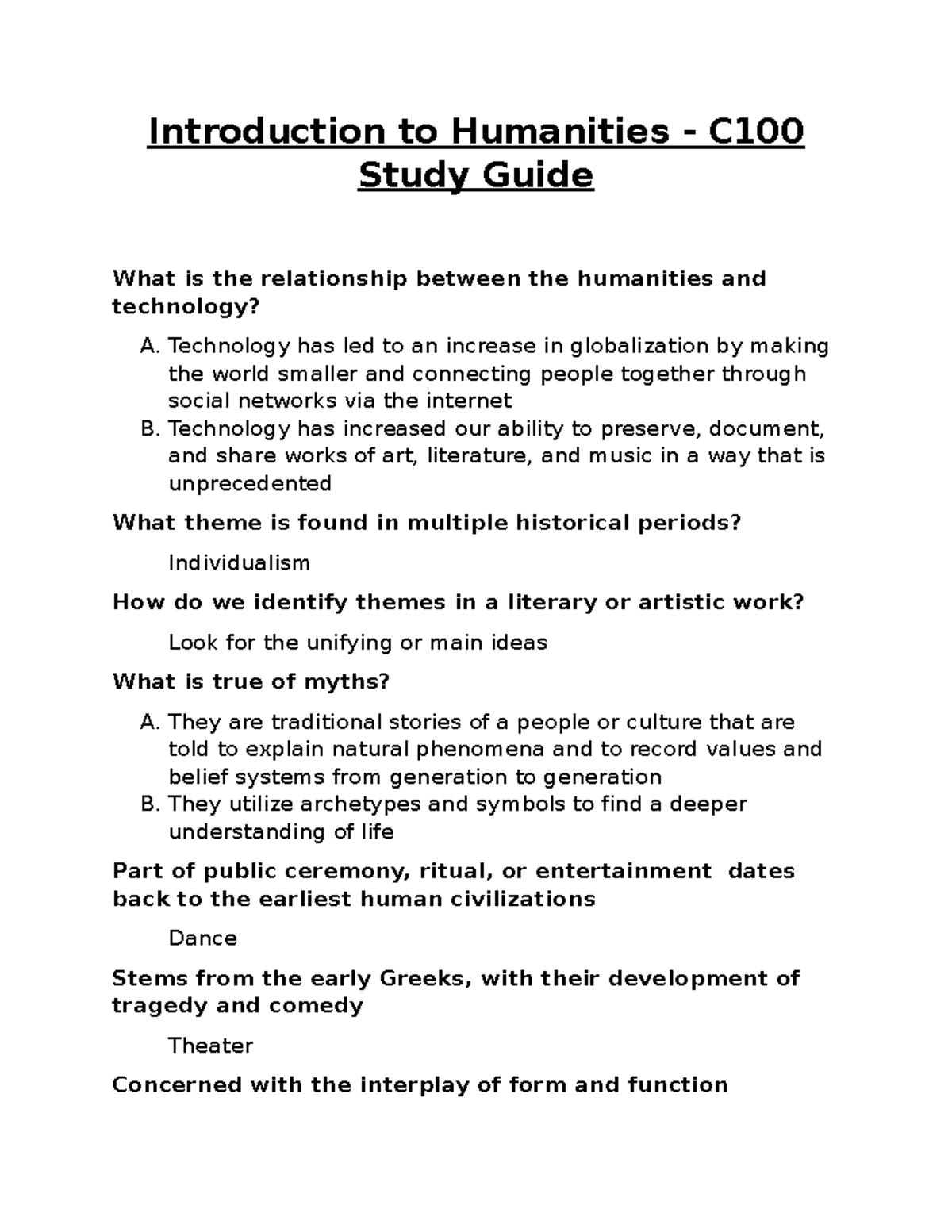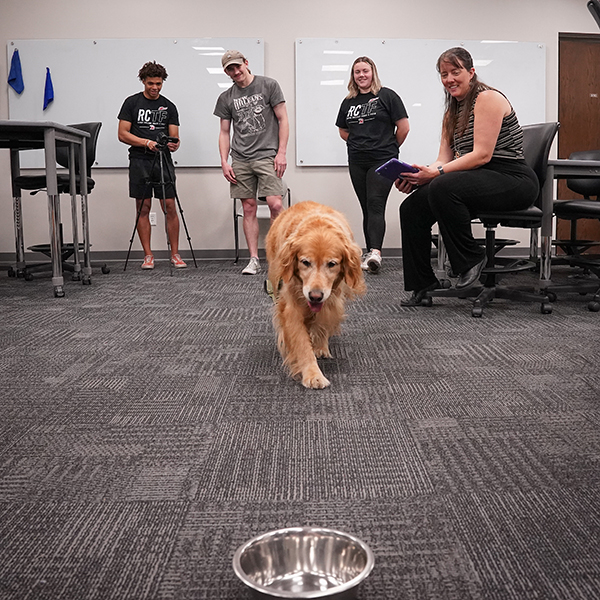“Night Side Songs” is a groundbreaking musical that delves into the profoundly emotional themes of illness and death, challenging the typical narratives found in traditional theater. Developed with insights from renowned palliative care specialist Susan Block, this poignant production captures the complexities of navigating life’s final chapters. Through the lens of diverse characters—including patients, caregivers, and medical professionals—”Night Side Songs” offers audiences a rich tapestry of human experience amidst the struggle with cancer. This innovative approach not only sheds light on the importance of palliative care but also embraces the transformative power of emotion in theater. By intertwining the artistry of musical storytelling with the realities of illness, “Night Side Songs” invites us all to confront the often-taboo discussions surrounding health and mortality.
Exploring the intricate relationship between theater and health, the musical “Night Side Songs” highlights a new narrative within the realm of theatrical performances focused on serious illness. This production redefines the boundaries of the musical genre by providing an emotionally resonant perspective on the journeys faced by individuals confronting terminal diseases. With a foundation rooted in authentic experiences shared by doctors, patients, and caregivers, this work resonates deeply with those who have grappled with the realities of life-threatening conditions. Through the creative lens of its makers, “Night Side Songs” showcases the intersection of art and compassionate care in ways that promote deeper conversations about life, death, and everything in between.
The Impact of Palliative Care in Theater
Palliative care plays a critical role in the portrayal of illness within the arts, particularly in theater. Susan Block, a pioneer in this field, has influenced the integration of deep emotional understanding into performances related to serious illness. Musicals like “Night Side Songs” create a bridge between the medical realities of patients and the expressive capabilities of theater. This convergence not only educates audiences about the complexities of dying but also fosters a communal dialogue about a topic often shrouded in silence.
Theater serves as a powerful tool for exploring the nuances of human experiences, especially concerning health and illness. By collaborating with palliative care specialists, playwrights can accurately depict the emotional landscapes faced by patients, families, and healthcare providers. In the case of “Night Side Songs,” the Lazour brothers’ research into end-of-life care guides the narrative, providing authenticity and depth that resonate with audiences. The emotional weight of these stories compels us to confront our fears surrounding death and encourages heartfelt conversations about our mortality.
Exploring Emotion in Theater
Emotion in theater taps into our collective consciousness, making it a vital aspect of storytelling. Productions like “Night Side Songs” exemplify how emotions can drive narratives, particularly those revolving around illness. The show captures the raw feelings of patients and caregivers, illustrating their struggles and triumphs in the face of daunting circumstances. By presenting such emotional realities on stage, the audience is invited to connect deeply with characters who go through similar life challenges.
Moreover, the emotional journeys presented in musicals set against the backdrop of illness empower audiences to engage with their feelings about mortality. Susan Block emphasizes the importance of these narratives, as they help demystify the experiences associated with dying and promote open discussions. In recognizing the emotional weight of illness, theater serves not just as entertainment but also as a catalyst for healing and understanding, making it a pivotal aspect of palliative care advocacy.
Night Side Songs: A Musical Examination of Illness
“Night Side Songs” stands out as a groundbreaking work that delves into the often-taboo subject of terminal illness through a theatrical lens. Combining music with poignant storytelling, the creators aimed to offer audiences a unique perspective on cancer care, drawing from Susan Block’s extensive experience in palliative care. The production artfully navigates the emotional complexities surrounding illness, reminding us that it is not simply a medical issue but also a deeply human one.
As audiences engage with the characters’ stories, they witness the multifaceted nature of cancer experiences shared by patients, families, and healthcare providers alike. The musical form allows for a blend of joy, sorrow, and hope, creating a space where viewers can reflect on their feelings regarding life and death. Through its innovative approach, “Night Side Songs” promotes a greater understanding of the emotional dimensions of illness, contributing positively to the conversation around palliative care and the need for compassion in healthcare.
The Role of Theater in Palliative Care Education
Theater, as a medium, has the extraordinary ability to educate and inform audiences about critical health issues, particularly through the lens of palliative care. Productions like “Night Side Songs” provide insight into the complexities of end-of-life scenarios, educating viewers on the various challenges faced by patients and their families. This educational element helps dismantle stigmas associated with discussing death, encouraging open discourse and empathy.
Involving experts like Susan Block in the creation of such productions bolsters the authenticity of the narrative, ensuring that the medical and emotional realities are honored and accurately portrayed. As audiences experience the musical’s depictions of suffering, resilience, and connection, they gain a deeper appreciation for the role of palliative care in enhancing the quality of life for those dealing with serious illness. Engaging with these stories can inspire others to advocate for better palliative care practices and facilitate more compassionate conversations in healthcare settings.
The Transformation of Health Conversations Through Arts
The intersection of art and health is increasingly recognized as a powerful avenue for transforming how society discusses difficult topics like illness and dying. “Night Side Songs” exemplifies this transformation, presenting a narrative that blends creative expression with vital health conversations led by experts like Susan Block. This innovative approach encourages audiences to confront their perceptions of illness, fostering an environment where emotional honesty can flourish.
By utilizing the unique platform of theater, discussions surrounding health, palliative care, and emotional well-being can transcend traditional boundaries. These performances create a communal space for reflection on mortality—inviting everyone to acknowledge their fears and hopes regarding life and death. This powerful combination of arts and health not only educates but also allows individuals to bond over shared experiences, ultimately leading to a more thoughtful dialogue on end-of-life matters.
The Importance of Audience Engagement in Musicals
Audience engagement is a pivotal aspect of any successful theater production, and “Night Side Songs” takes this to heart by inviting viewers to participate actively. By shifting away from conventional seating arrangements and encouraging sing-alongs, the musical fosters an intimate atmosphere. This approach not only enhances the emotional connection between the audience and the performers but also reinforces the communal aspect of grappling with themes of illness.
Diane Paulus, the Artistic Director of A.R.T., emphasizes the importance of creating an inviting space where audiences can interact and engage with the material. Participation allows individuals to process their emotions collectively, making the experience of watching a musical about serious illness not only more profound but also healing. As individuals share their reactions through song and connection, “Night Side Songs” achieves its goal of promoting open discussions about death and dying, reinforcing the role of theater as a therapeutic medium.
The Future of Musicals in Addressing Health Issues
The future of musical theater seems poised to embrace more health-related themes, driven by productions like “Night Side Songs” that weave complex emotional narratives into their fabric. As the demand for greater representation of real-life struggles in the arts grows, more playwrights and composers are likely to explore the topics of illness, health care, and emotional resilience. This shift will not only diversify the types of stories told on stage but also serve a critical role in public health education.
Integrating health themes into musicals challenges societal norms surrounding illness and mortality, encouraging collective reflection and understanding. As professionals in palliative care, like Susan Block, continue to collaborate with artists, the potential for impactful storytelling expands, inviting audiences to engage with health topics they may otherwise avoid. This evolution exemplifies how art can be a formidable ally in reshaping narratives around illness, emphasizing the importance of compassion and emotional expression across all facets of life.
Musicals: Bridging Health and Emotion
Musicals have a unique capacity to bridge the gap between health issues and emotional humanity, as demonstrated in works like “Night Side Songs.” By employing music and storytelling, these productions invite audiences to share in the struggles of patients and healthcare providers, highlighting the emotional weight of serious illness. This artistic representation fosters greater empathy and understanding, breaking down barriers that often inhibit conversations about difficult health topics.
As spectators experience the relevance of palliative care through the lens of theater, they become more likely to confront their feelings about mortality. The narratives presented in musicals act as a springboard for ongoing conversations around health, compassion, and the human experience. Through engaging performances that illuminate the intricacies of illness, musicals transcend mere entertainment; they serve as essential tools for emotional exploration and communal healing.
The Legacy of Palliative Care in Modern Arts
As palliative care continues to evolve, its impact on the modern arts is becoming increasingly evident. Productions like “Night Side Songs” symbolize a significant shift in how we view illness and its representation in the theater. By placing palliative care at the forefront of a musical narrative, artists are advocating for more widespread conversations about death and emotional suffering, helping to dismantle the stigma often associated with these topics.
The legacy of experts like Susan Block in this transformation cannot be understated. Their insights allow for a more honest portrayal of health-related issues, contributing to a broader understanding of the human experience. As the integration of palliative care principles into the performing arts gains traction, we can anticipate a future where conversations about illness are not only normalized but celebrated, paving the way for a more compassionate society.
Frequently Asked Questions
What is ‘Night Side Songs’ and how does it relate to palliative care?
‘Night Side Songs’ is a poignant musical that delves into the experiences of cancer patients, their caregivers, and clinicians. It was developed with insights from palliative care specialist Susan Block, who played a pivotal role in shaping the storytelling to accurately reflect the emotional and psychological aspects of illness and end-of-life care.
How does ‘Night Side Songs’ incorporate themes from palliative care?
‘Night Side Songs’ incorporates themes from palliative care by exploring the emotional struggles, treatment experiences, and interactions between patients, families, and healthcare providers. The musical is designed to help audiences process their feelings about illness and death, encouraging open conversations about these often-taboo topics.
What feedback did Susan Block provide during the development of ‘Night Side Songs’?
Susan Block provided critical feedback throughout the development of ‘Night Side Songs’, helping the creators accurately portray the lived experiences of patients and the complex realities of palliative care. Her insights aimed to ensure that the musical resonated emotionally with audiences and truthfully depicted the nuances of caring for the seriously ill.
What makes ‘Night Side Songs’ different from traditional musicals?
‘Night Side Songs’ distinguishes itself from traditional musicals by tackling serious themes around illness and mortality while inviting audience participation through singing and intimate venue setups. This approach fosters a unique connection between the audience and performers, enhancing the emotional impact of the narrative.
What was the inspiration behind ‘Night Side Songs’?
The inspiration behind ‘Night Side Songs’ comes from Susan Sontag’s observation that ‘illness is the night side of life’. This perspective, coupled with extensive research into end-of-life experiences, guided the Lazour brothers in creating a musical that candidly addresses the complexities of cancer care and the human condition.
Where can I watch ‘Night Side Songs’ and how can it help those dealing with illness?
‘Night Side Songs’ is being staged in intimate venues like the Cambridge Masonic Temple and Hibernian Hall. The musical offers a heartfelt exploration of illness, making it a valuable experience for those affected by serious diseases, as it facilitates understanding and emotional expression around the challenges of confronting mortality.
How does ‘Night Side Songs’ address emotional suffering related to illness?
‘Night Side Songs’ addresses emotional suffering by presenting the stories of patients, caregivers, and medical professionals in a heartfelt and evocative manner. Through its musical format, it encourages audiences to confront and articulate their fears and uncertainties surrounding illness, fostering a supportive communal experience.
Can attending ‘Night Side Songs’ help initiate conversations about palliative care?
‘Night Side Songs’ can serve as a powerful catalyst for initiating conversations about palliative care, as it brings the often difficult topics of fear, grief, and the dying process to the forefront in an engaging and accessible way. It encourages audience members to share their experiences and feelings, breaking the silence surrounding death.
| Key Point | Details |
|---|---|
| Susan Block’s Role | Palliative care specialist who advised on the musical. |
| Inspiration for the Musical | The musical is inspired by Susan Sontag’s observation that ‘illness is the night side of life.’ |
| Themes Explored | The experiences of doctors, patients, caregivers, and family members. |
| Pioneering Palliative Care | Susan Block has been foundational in integrating palliative care into healthcare systems. |
| Audience Engagement | The show encourages audience participation, inviting them to sing along. |
| Intimate Venues | Performed in smaller venues to foster connection among audience members and performers. |
Summary
Night Side Songs is a compelling musical that tackles the profound and often overlooked topic of death and dying. It succeeds in bringing to light the emotional complexities surrounding illness through music and storytelling. With the guidance of palliative care specialist Susan Block, the Lazour brothers have created a piece that resonates deeply with everyone who has faced or witnessed serious illness. Their work encourages an open dialogue about mortality, making it a vital piece for both theater enthusiasts and those navigating the realities of life and death.



